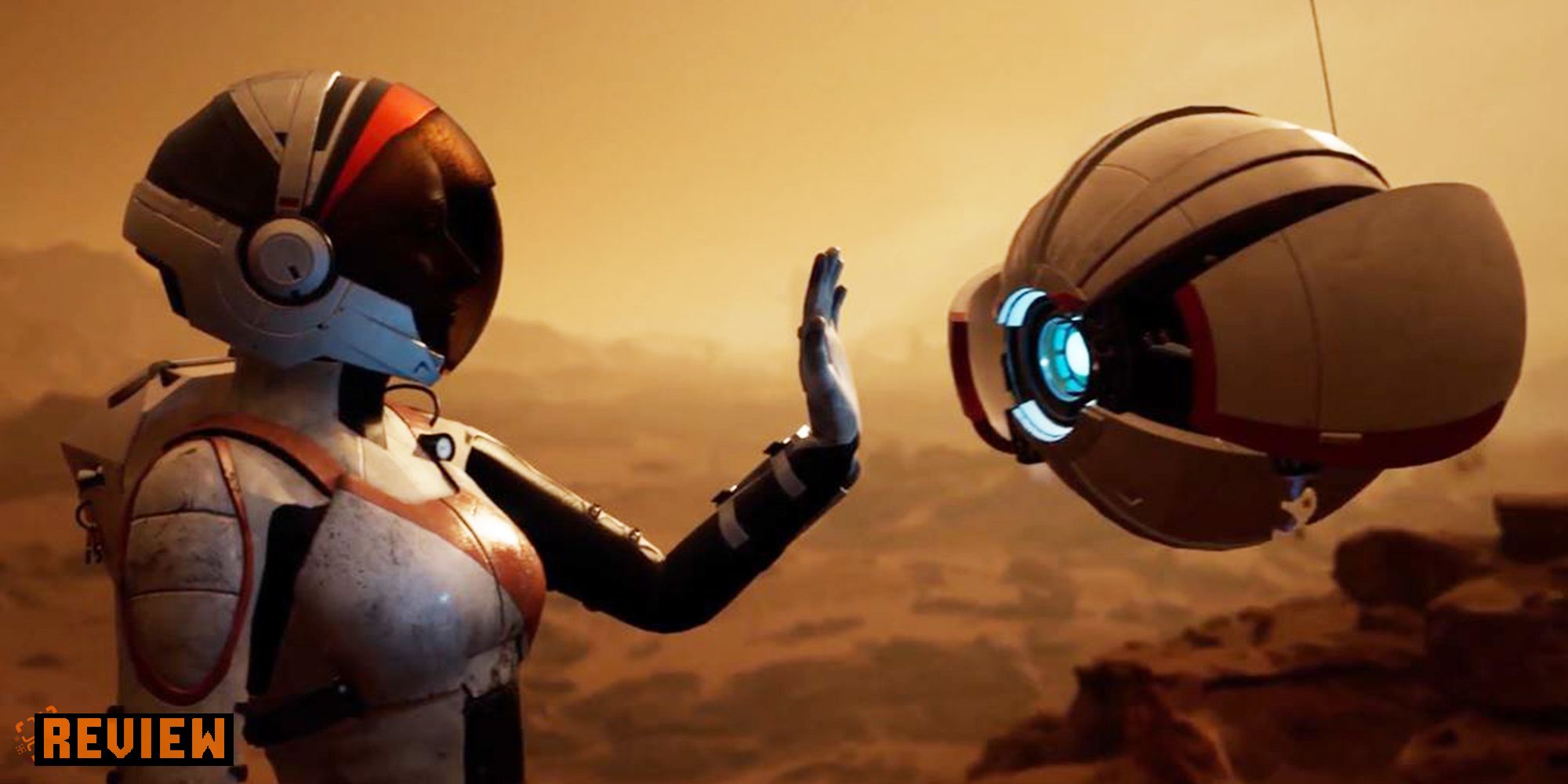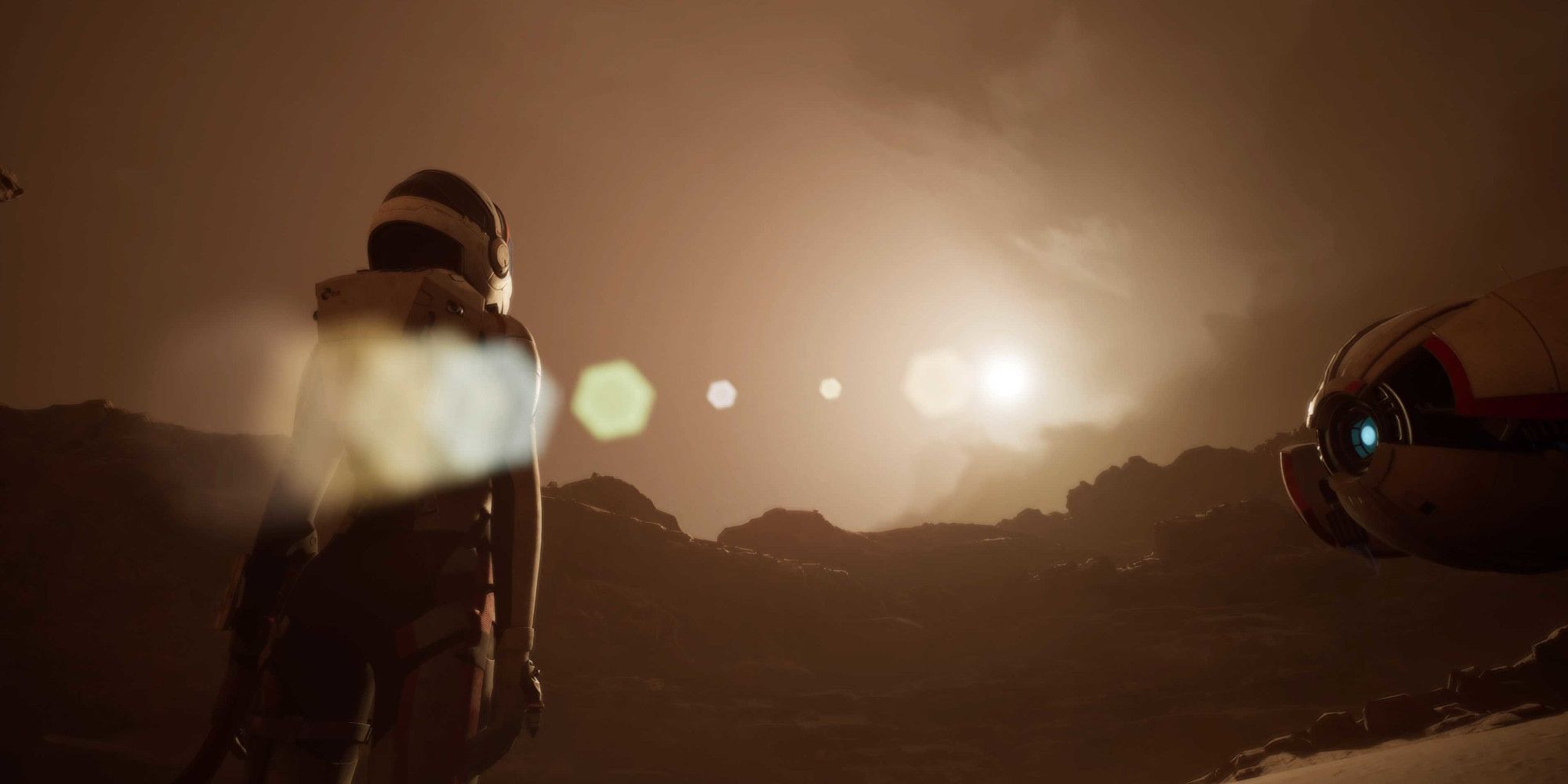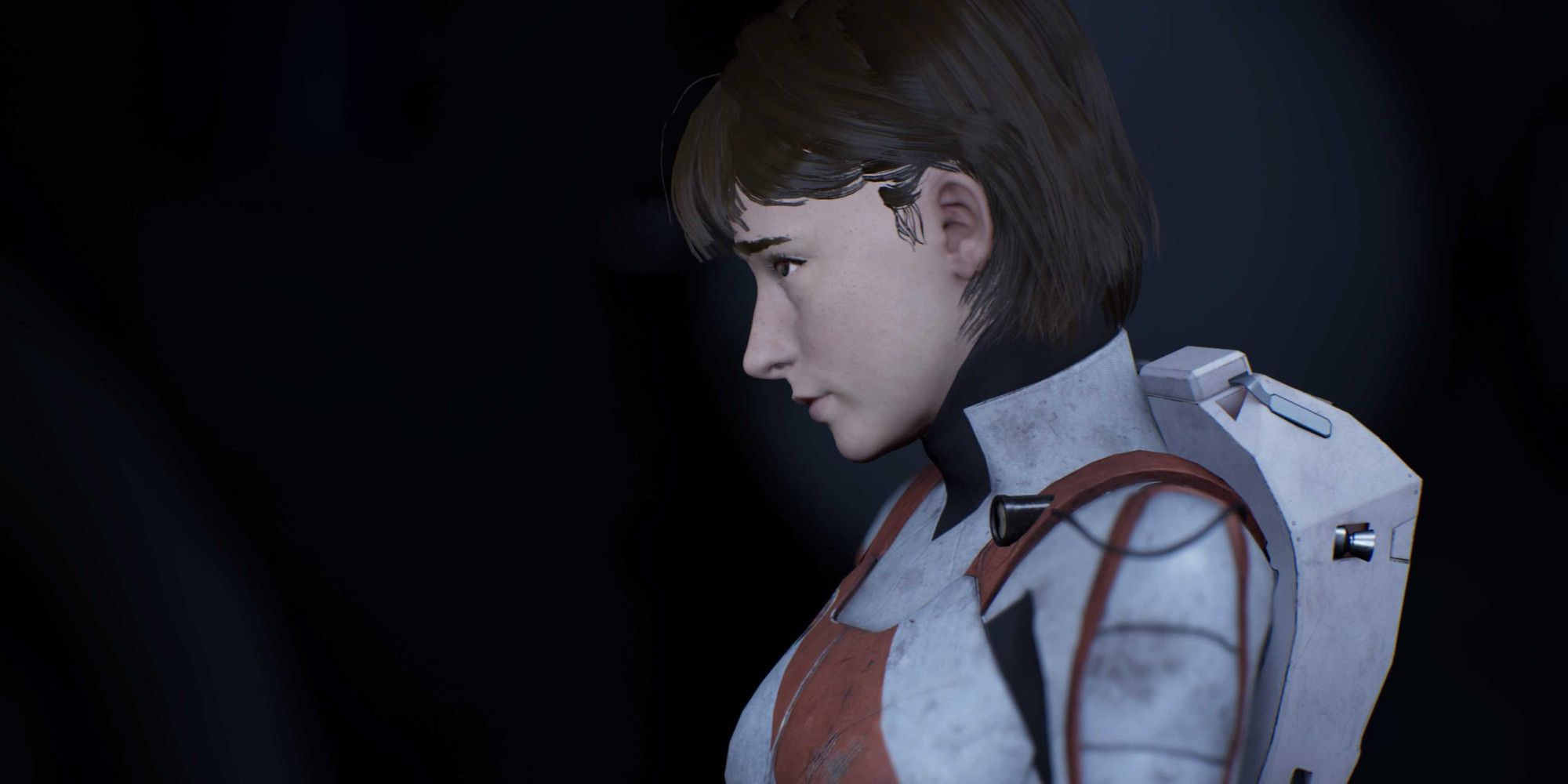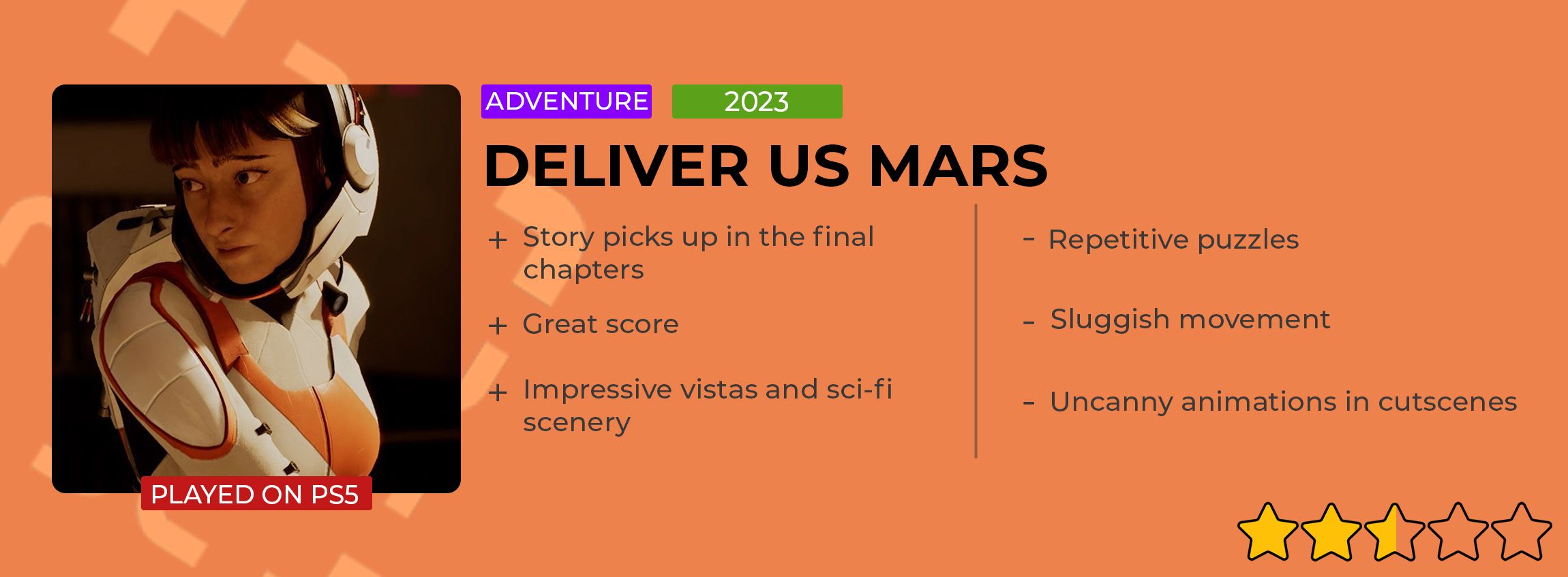During my Gamescom preview of Deliver Us Mars, I was told by PR that developer KeokeN Interactive was referring to it as “triple-I”. Unfortunately, that ambition has forced the space puzzle game to crash land. The story of a family separated across space after Earth comes to the brink of collapse is held back by some frustrating new additions to the series. It stutters to a satisfying conclusion, but that doesn’t help wash away the lingering bitter aftertaste.
The story struggles to find itself until the final chapters. Protagonist Kathy undergoes a mission to Mars to find her father, a genius scientist who abandoned humanity in pursuit of a new life on the Red Planet. A morally grey character in the original game, he’s here reduced to the pathetic sidekick to a much more clear-cut bad guy. Kathy’s motivations are largely selfish, but align enough with that of the core mission’s that she’s also never as ambiguous as she could be. It’s a sad departure from its predecessor where you were left to decide who was right and who was wrong. The facial animations fail to convey the emotion in the voice acting, and the constant switching between past and present, which serves to blend tutorialisation and story, ruins the pacing of the plot.
This deviation into a more black-and-white narrative wouldn’t feel like such a loss if the puzzles and action sequences didn’t all fall so flat. Rather than an array of unique brain-teasers, puzzles largely fall into the same formats that quickly grow dull. Connecting power beams to open doors and playing I-Spy in a room or vista is how far too much time in-game is spent. There are also rocket-launching sequences that strip away all the tension and drama found in the first game. Rather than being given a manual and a time limit, you have to search the control consoles until the interact button pops up, removing any sense of agency or urgency.
Getting to each puzzle is made frustratingly slow by the new climbing mechanic, inspired by the Free Solo documentary. This isn’t Lara Croft or Nathan Drake, it’s a slog just to get up a ten-foot wall. The rhythm of pressing and releasing each trigger as you slowly make your way up and across walls is stunted by the fact you have to take into account slight differences in texture. These cause your picks to clang off the wall and send you plummeting to your death if your other pick is already out the wall. These are clearly meant to turn exploration into a puzzle of its own, but the grueling journey and mind-numbing focus required just make them a chore.
Engaging with the story is tiresome as well. There’s a shift from charming, stop-motion holograms to more traditional motion-captured cutscenes. Restriction breeds creativity, and the lower budget of the first game in the series brought aesthetic calling card that’s been pushed aside in favour of uncanny valley facial expressions. Accessing the holographic hallmark of the series requires the completion of a perspective puzzle using your robot companion, AYLA, but these are so repetitive they feel like time fillers designed to make the game longer and therefore seem more worth its price.
Compounding all of these issues are a slew of technical problems, from Kathy’s hair flailing around every time she enters the frame in a cutscene to walking animations appearing to make characters glide rather than step. These all seem to result from the shift to the grander scale of a “triple-I” game, and while the ambition is admirable, the execution is not.
In attempting to emulate the cinematic aesthetic of many narrative-driven triple-A games, Deliver Us Mars lost a lot of what made Deliver Us The Moon work. Instead of a charming indie, we’re left with a disappointing wannabe. There’s an interesting story in here that’s able to shine through the dust occasionally, alongside some gorgeous vistas and wonderful sci-fi imagery, but if we get a third entry in the series, I hope it returns to its roots instead of trying to be something it’s not. Bigger isn’t always better.




